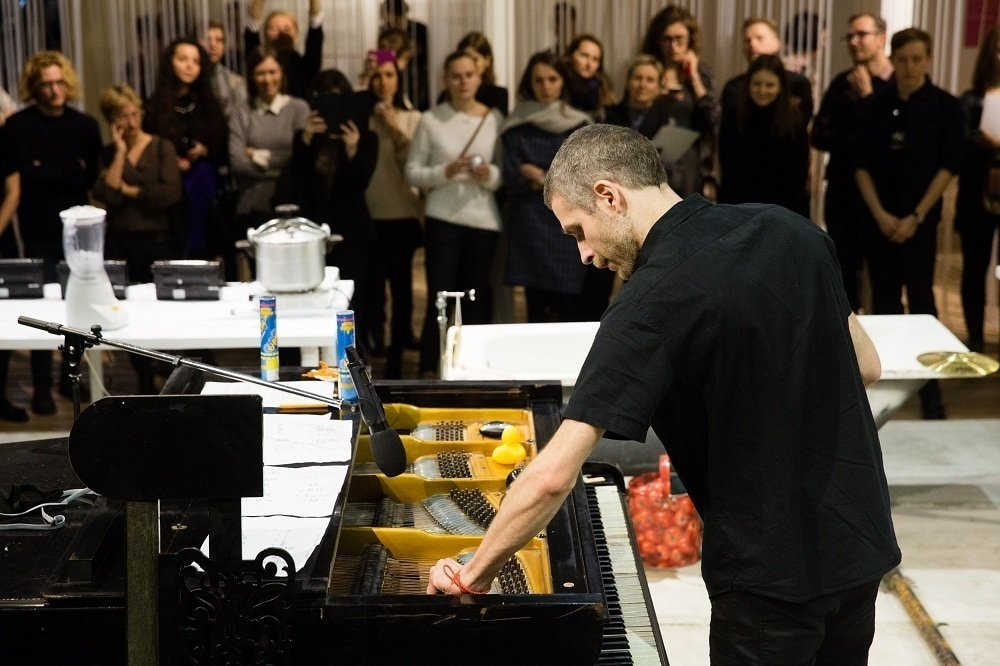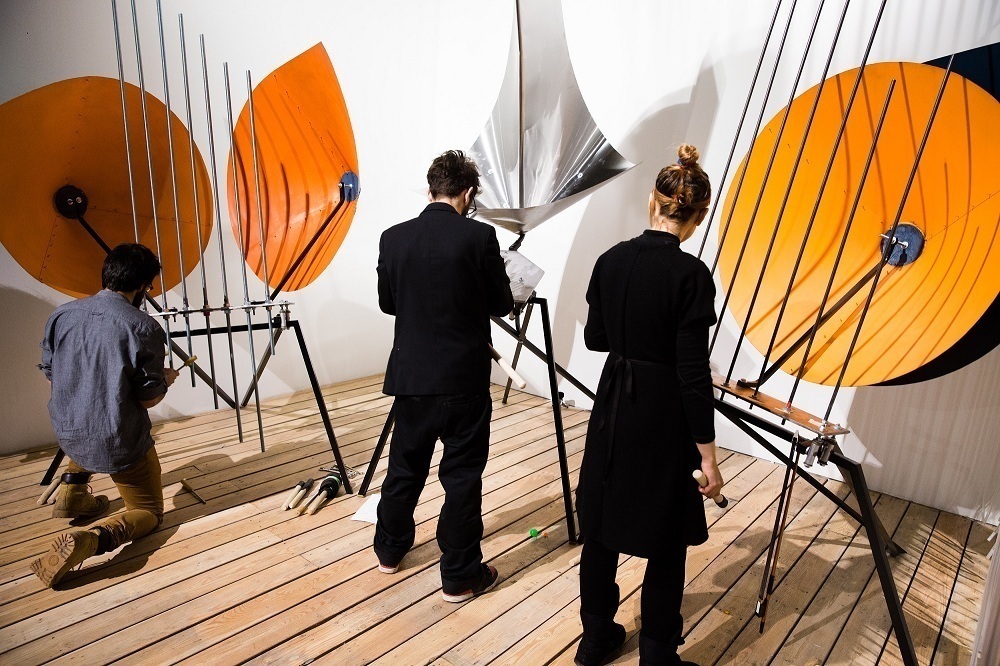CONCERTS SERIES «SOUNDTHISSOUNDTHAT!»
The unrepeatable uniqueness of the moment, so vital for Cage, is realised in Art Experiment, as well as in the musical format of the concert—three of which make up the series soundthissoundthat! compiled by Dmitry Vlasik. Demonstrating how avant-garde concepts can be integrated, adapted, and transformed in a variety of different ways—musical interventions will also take place throughout the course of the project.
Without any prior warning or set timetable, students and teachers from five of Moscow’s music schools will perform Cage’s Water Walk, undoubtedly coming as a surprise to many visitors.
CONCERT PROGRAM «SOUNDTHISSOUNDTHAT!»
Created by Dmitry Vlasik
December 25, 18:00 session
Corporate Party Concert
Contemporary pieces performed by transforming the artist's body into the primary object of sound.
January 9, 18:00 session
Traces of halt and hesitation (of love and intimation)
A play by Antoine Beuger
Beuger is a founding member of the Wandelweiser Group, which creates pieces inspired by Cage, and sees music as a “fleeting recollection, an affirmation that nothing can truly be possessed.”
First full performance in Russia.
January 11 , 18:00 session
Art Experiment Closing Concert
Illustrating Cage's significant influence and legacy, this concert is comprised of the pieces created specifically for the event by Russian composers: Nadezhda Matveeva, Anna Versotskaya, Alexander Skobeev, and Alexei Zaitsev.
«SOUNDTHISSOUNDTHAT!»
The observation that "any sound can be music" is synonymous with the name John Cage. The composer is credited with a vast array of ideas still actively circulating around what is referred to as "modern music," including "any sound …," "the noise of the street," and the notion that music speaks not only to the listener, but can be experienced outside of the narrative, or perhaps even outside of time altogether.
One cannot separate Cage's ideas from his incredible charisma, his paradoxical and provocative outlook on music, his love of Erik Satie, Marcel Duchamp, and James Joyce, or his jovial character. His practice perfectly
exemplifies how the popularity and widespread dissemination of a set of ideas owes as much to the nature of its presentation as it does to its immediate content. This approach was an inherent aspect of Cage's brand of knowledge, and may have been what fellow US composer Morton Feldman meant when he remarked "John opened up the door and I just opened the window a crack."
Today, Cage's fundamental postmodernist idea of the "any sound…" forms the very basis for current relations of production. These have elevated the hollowness of the present capitalist system to unparalleled heights in terms of cynicism, where users willingly turn corporate agents by lacing a hodgepodge of cute selfies with the occasional image of their brand-new sneakers, while institutions construct relationships with artists based on their web-filtered online doubles.
How has Cage's "liberation of music" affected the contemporary academic repertoire? How have the ideas of the famous anarchist, initially formulated in an effort to halt the endless cycle of lethargic "slipping" in music, come to be repurposed as the underlying principles of "repeat" culture? What constitutes modern artistic and musical strategies? Find answers to these questions and many more in this musical program dedicated to Cage and his followers.
Dmitry Vlasik
Dmitry Vlasik was the author of and participant in Music Beyond the Walls and Free Time, a series of concert performances held at Garage in the summer of 2012 and 2013.
He is known for his work in popularizing contemporary academic music, creating audial performances, and has written a number of scores for theatrical projects.



